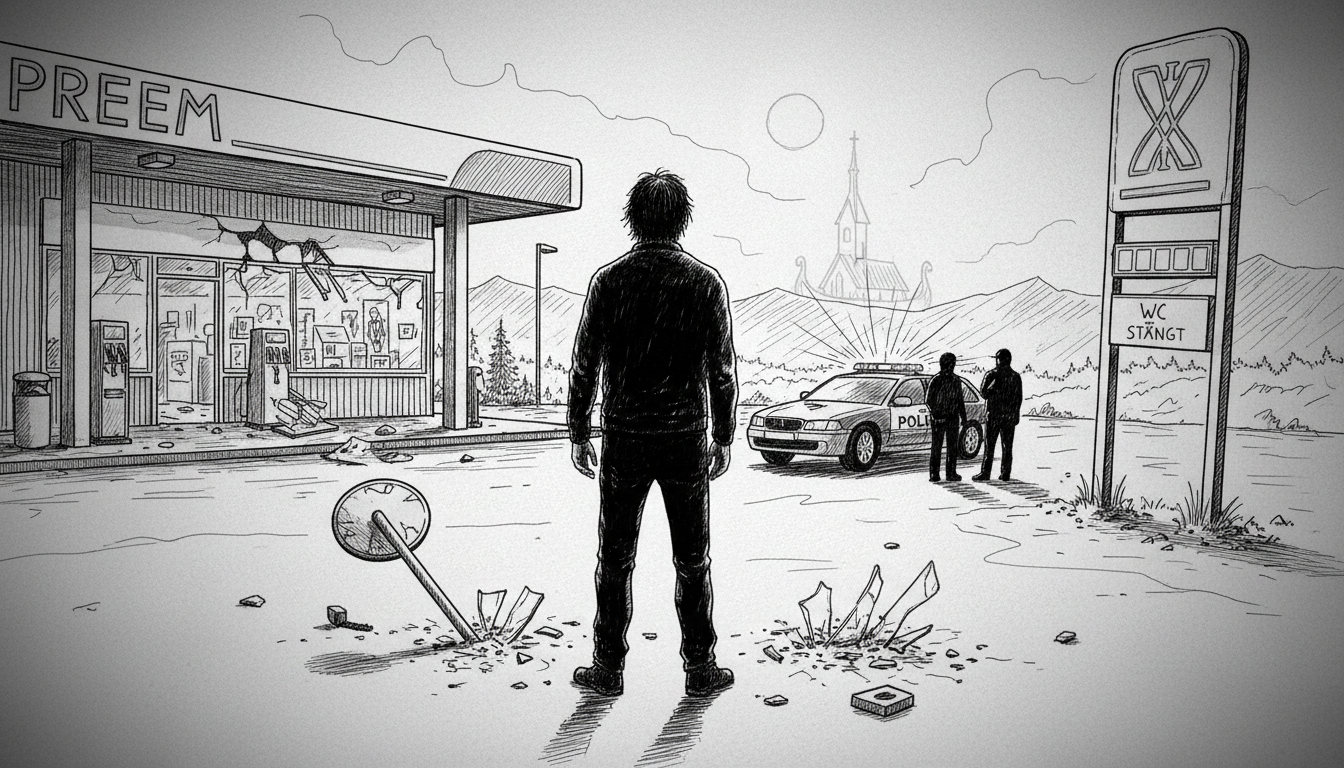A man in his mid-twenties faces prison time after a violent outburst at a northern Swedish gas station. The incident began when staff refused him access to their restroom facilities. Court documents reveal he destroyed property and used broken furniture as weapons against the building.
The Kalix resident went into what locals describe as a 'bärsärk' rage, referencing ancient Norse warriors known for their battle fury. He shattered glass tables and used the fragments to smash the station's windows. This destructive episode represents just one of eighteen criminal convictions against him.
Swedish courts sentenced him to one year and four months in prison. He must also pay over 50,000 kronor in damages to multiple victims including the gas station owners. He remains in custody while awaiting transfer to serve his full sentence.
This case highlights Sweden's approach to public disturbances and property crimes. The country maintains strict liability for damages caused during criminal acts. Local businesses often face difficult decisions about restroom access policies.
Many Swedish gas stations and convenience stores restrict toilet use to paying customers. This practice aims to maintain cleanliness and prevent vandalism. Still, it sometimes creates tension with travelers and local residents.
The northern town of Kalix sits about 800 kilometers north of Stockholm. Like many rural Swedish communities, it relies on roadside services for both locals and tourists. Such businesses balance customer service with security concerns daily.
Swedish legal experts note this case reflects typical sentencing patterns for repeated property crimes. The combination of prison time and substantial financial compensation aims to both punish and rehabilitate offenders. It also seeks to restore victims' losses whenever possible.
What does this mean for visitors to Sweden? Most businesses welcome respectful customers. Still, understanding local customs helps prevent misunderstandings. Always ask politely about facilities and consider making a purchase when using services.
The case continues a conversation about public behavior and business responsibilities across Swedish society. As tourism increases, these interactions between visitors and local establishments become more frequent. Finding the right balance remains an ongoing challenge for communities throughout the Nordic region.

